Blog
Learning 'How to Travel' in Andalucía
The gaining of new perspectives is, I don't doubt you will agree, a rather wonderful thing. It is a huge motivator for some of our travels. It provokes thought and encourages learning, but simultaneously exposes us to gaps in our understanding, hitherto unknown ways of thinking that might jar with our strongly held beliefs in some arena or other. This can be confronting, but only temporarily. The illumination it brings is far more profound.
It was in this spirit that Pura co-founder Thomas Power gifted us each a copy of How to Travel by the School of the Life this Christmas. The book is wonderful, I encourage anyone to buy it, read it, challenge it and let it challenge you. I'd read nearly all of it by the time our plane had lifted off the tarmac at Luton airport, destined for Andalucía. But it took this journey to foreign parts to truly digest and interpret its deeper meanings. These are a handful of reflections, which might inspire your own journeys of discovery.
A blanket of stars, Priego de Córdoba
"Our encounter with nature calms us because none of our troubles, disappointments or hopes have any relevance to it. Everything that happens to us, or that we do, is of no consequence whatsoever from the point of view of the ocean, the sheep, the trees, the clouds or the stars."
We gather in towns, cram together in cities. The night sky is a stranger to us and the chance to properly study it is rare. But it was a luxury afforded to me at the end of the penultimate evening of 2018, amid a sea of silvery olive trees in Central Andalucía.
Eight of us were gathered on the patio of Claire and Tim's farmhouse-turned-B&B. I complimented the former on her homemade empanadas and thanked the latter for the warming glass of Andalucían-style mulled wine. The cold night air was penetrating deeper. Jose was getting excited, directing our attention upwards again. Our gazes were met with a blanket of stars, revealing itself bit-by-bit as our eyes adjusted to the darkness. He pointed out the North Star and took us back to the days when seamen chartered their courses back home, or to distant new frontiers, based on its proximity to the horizon. He spoke of constellations with their Spanish names and beamed his green laser all the way to the feintly red surface of Mars.
My neck grew weary, my eyes grew wide and my mind was bent out of shape as I peered through the telescope at a star, two million light years away. Time is boundless, the universe is infinite and stars beam down from millenia away.
I distinctly remember feeling very small, utterly insignificant by comparison. It holds you in the moment. And when you come out of the moment, hopefully your perspective has shifted just a little. If we're insignificant, then so must those little nagging thoughts that preoccupy us be. Life is too short, too precious to waste it. Far better to indulge yourself in Andalucía and allow your thoughts to find a new plane and greater range.
The little restaurant, Linares
"Almost all of us are, when we travel, in search of this ideal establishment: the little restaurant. The problem is that such places are woefully rare. If we understand ourselves and human nature a little better, there could conceivably be countless such 'locals'."
Four hours later, the fire was still burning, softly crackling behind me. It had drawn the attention of each local family which had since joined us in the restaurant. The little cork stalls that we'd perched on when we arrived were still in position. A visible space remained where our glasses of red wine, from the nearby hills of Granada, had been softly warming.
Co-owner Adela cleared away the last evidence of a seven-course tasting menu, a veritable greatest hits of Andalucían cuisine. She beamed with pride as I heaped praise on the delicacy of the carpaccio, on the intensity of the honey-glazed goats cheese and the sweetness of the tomato and fig soup. Orange wine followed, then a much needed coffee.
Somehow though, it wasn't about the food. Not entirely at least. My taste buds had enjoyed the ride of their lives, but what filled the experience with joy, with an almost romantic happiness, was that for four hours we had lingered over the food, the wine, the fire. We didn't look at our phones, stopped having a concern for the time.
Sometimes we have to go on holiday to find such luxury. We have to go to somewhere like Andalucía and a little restaurant in a sleepy white village, surrounded by cork oak trees.
Selfie-dodging at the Alcázar, Seville
"John Ruskin argued that humans have an innate tendency to respond to beauty and a desire to possess it, but that there are better or worse expressions of this desire."
Seville's Real Alcázar is one of the ultimate expressions of the Mudéjar architectural style, so typical of Andalucía. Its true value lies not just in the intricacies of its azulejos and the complexity of its inlaid ceilings, but in its ability to connect us with a reality very different to that of our 21st century world. It allows us to daydream of Moorish strongholds struggling to resist the advance of Christian armies. It poses questions about what life must have been like for an Islamic artist under the direction of Christian overlords.
But as I stood in the Jardin del Principe, I wasn't contemplating life under King Pedro in the 13th century, but rather what it would have been like to visit the Alcázar at the end of the 20th century. Or before we could snap selfies as if we were ticking them off a list. I waited patiently as a young lady composed and recomposed the perfect image of her posing confidently in front of and on top of beautiful centuries-old tiling. She finally vacated the scene and I could see what she had been hiding, and what she'd failed to appreciate beyond the prospect of a photo op.
It made me wonder about the role of such medieval masterpieces in a world where many travellers are more concerned with recording themselves within the context of the beauty, rather than spending time appreciating it with their own eyes. Is, I pondered, the majesty of the Patio de las Doncellas enhanced by our presence in the foreground, obscuring the delicate channel of water that is so typically Moorish in character? It struck me how jarring it would be to have your experience in the Louvre or the Reina Sofia compromised by fellow visitors ceaselessly recording their encounters with each piece of art. Why is the exquisite artistry of a Mudéjar palace not accorded the same reverence?
Beyond the inconvenience to others, there is perhaps a deeper point here. Noticing, appreciating and being moved to capture the simplistic artistry and clarity of vision allows us to "possess" it in a way that our minds can absorb some of its merit. We might then apply its more abstract messages to an altogether different arena of our lives, helping us to become a slightly better individual. I would venture to say that such thoughts struggle to take root if all we have left is a photo of ourselves grinning back at us.
Three Kings parade, Seville
"There are certain occasions when we have a powerfully positive experience of being in a crowd.. it's deeply thrilling to feel that we're sharing moments of collective pride with many others in an atmosphere of dignity and prowess."
A mother and her two young children stood at the balcony of their second floor apartment on the appropriately named Calle Amor de Dios. They flinched and covered their heads as another shower of sweets was vigorously flung their way by a man with a getup straight out of Aladdin. Together, they roared with laughter. Below them, the crowd, perhaps two or three hundred of us, broke out into a spontaneous chant of ole, ole, ole, ole followed by something I couldn't distinguish. On the other side of the street, a middle-aged man, of the enterprising sort, lowered down a large bright orange sports bag tethered to some sort of rope as one float after another rolled past his window.
Hacemos de Sevilla la ciudad más limpia? (shall we make Seville the cleanest city?) read the back of one float. Upon it, two dozen children were simultaneously throwing countless thousands of tiny sweets out to the masses, most of which settled between the outstretched arms and awkward lunges into the darkness between our feet. I finally caught one, thanks to the reach of one chap who clearly missed his calling in life as an NFL quarterback. I offered it to the young girl next to me, who hesitated shly and waited for the encouragement of her mum before accepting it with a smile.
As young children, we were always taught not to take sweets from strangers weren't we? But for tonight, just after sunset on 5th January, I wasn't a stranger. I belonged to an electric sense of pride, of collective belonging. For a foreign visitor, the only one in sight besides my wife, it was an extraordinary privilege. Praise be to the power of the crowd. Which we need not always seek to escape.
Seagulls on the beach, Cádiz
"We've inherited a romantic suspicion of the ordinary (which is taken to be mediocre, dull and uninspiring) and work with a corresponding notion that things that are hard to find or deeply unfamiliar are naturally fitted to delight us more."
Upon arrival at Cádiz, I knew to direct myself to the Avenida Campo del Sur and gaze appreciatively towards the gilded dome of the cathedral. I knew this because I have been told so, indirectly, by the predominance of this view in the collective imagery of the city gathered in guide books, on the internet and in the postcard stands of souvenir shops. It's a lovely image, the dome glinting in the morning light up ahead, the clear blue waters of the bay sweeping off into the distance to my right.
What these images fail to convey is the presence of a makeshift bright green cat shelter someone has lovingly built on the rocks below. Painted onto it are the words los animales no son juguetes que regalar, sino seres vivos para adoptar. Animals are not toys to gift to loved ones, but live beings to be adopted. Drawn to it by some unknown force, felines take shelter under its cover.
A cursory browse of Cádiz eateries will point you in the direction of Cafe Royalty, a local institution. We need no encouragement to sit at a table in the corner, gaze at its ornate ceilings, admire its antique furniture and dip its heavenly churros-like picatostes into a thick cup of melted hot chocolate. But it's easy to pay insufficient heed to the little green monk parakeets which squak from their lofty perches on the palm and orange trees of Plaza Candelaria, on which the cafe sits. I watched one nibble off a substantial twig the size of its body, no small undertaking, then drop it heartbreakingly to the ground as it took flight back towards its nest.
And on La Caleta beach we know our business here is to sprawl lazily on the golden sands, embrace the rays of the sun and watch small fishing boats bobbing happily in the bay. We have less encouragement, less permission, to sit and watch the seagulls. These ordinary creatures have little exoticism within this context. They sing to us all day long outside our Brighton office after all. But there is a simple enjoyment to be had watching them swoop playfully across the gentle waves and engage in casual arguments as their bodies reflect in the thin sheet of water covering the sand. Small details are as much the fabric of our memories as the iconic views which first seduced us.
Under a cloudless sky, Grazalema
"Sunshine isn't merely nice. It has a profound role in our lives. It is an agent of moral qualities; generosity, courage, the appreciation of the present moment and a confidence in our surroundings."
I sat down on a sunlit rock under a cloudless Andalucían sky. Up above, a griffon vulture circled downwards on the currents, looming larger before disappearing behind the huge orange and grey limestone face of Los Frailecillos, which dominated the view. The gentle clinking of sheep bells drifted in and out of earshot.
The sun shone on my face, reminding me that I'd again forgotten to apply suncream. I opened up the tin foil of my lunch and took a bite out of the sandwich, the bread coated in olive oil, thin slices of cured jamón ibérico and thick pieces of fresh tomatoes inside. The date was 8th January, though it didn't feel like it. The cold, damp mid-winter afternoons of Southern England felt a long way away.
On beaches, the sun can soothe away our worries, apply a bronze hue to our skin and warm our backs. But for it to truly warm our hearts, perhaps we need the presence of river valleys, soaring mountainsides and a herd of cows gathered around a watering hole. Perhaps the sun is at its most powerful when it's shining a light on the joys of nature, encouraging us to look a little closer.
Thank you for reading.
Our Andalucía holidays Get in touch Subscribe to The Pothole
The Pothole is Pura Aventura's popular monthly email. We share what we love, what interests us and what we find challenging. And we don't Photoshop out the bits everyone else does. We like to think our considered opinions provide food for thought, and will sometimes put a smile on your face. They've even been known to make people cry. You can click here to subscribe and, naturally, unsubscribe at any time.
The Pothole is Pura Aventura's popular monthly email. We share what we love, what interests us and what we find challenging. And we don't Photoshop out the bits everyone else does. We like to think our considered opinions provide food for thought, and will sometimes put a smile on your face. They've even been known to make people cry. You can click here to subscribe and, naturally, unsubscribe at any time.
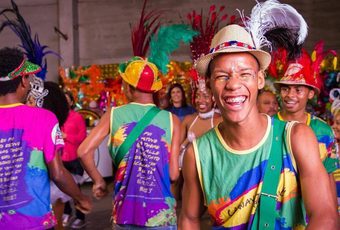
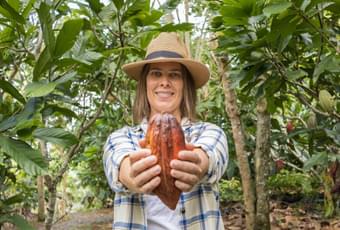
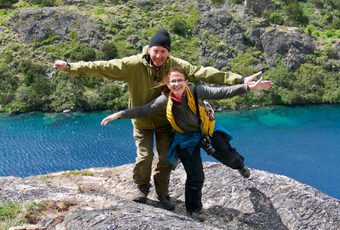


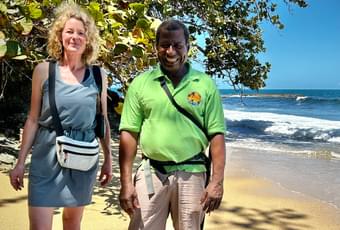
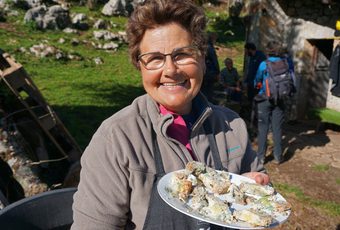
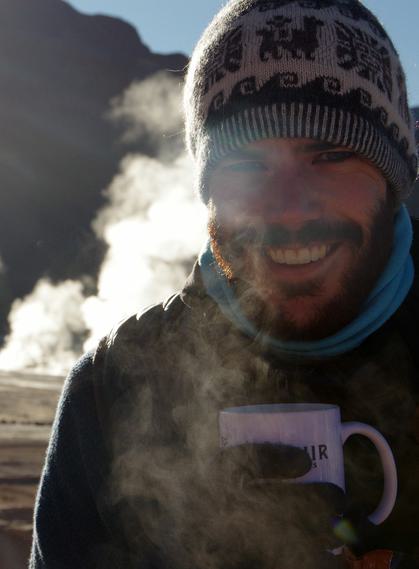
 By
By 

